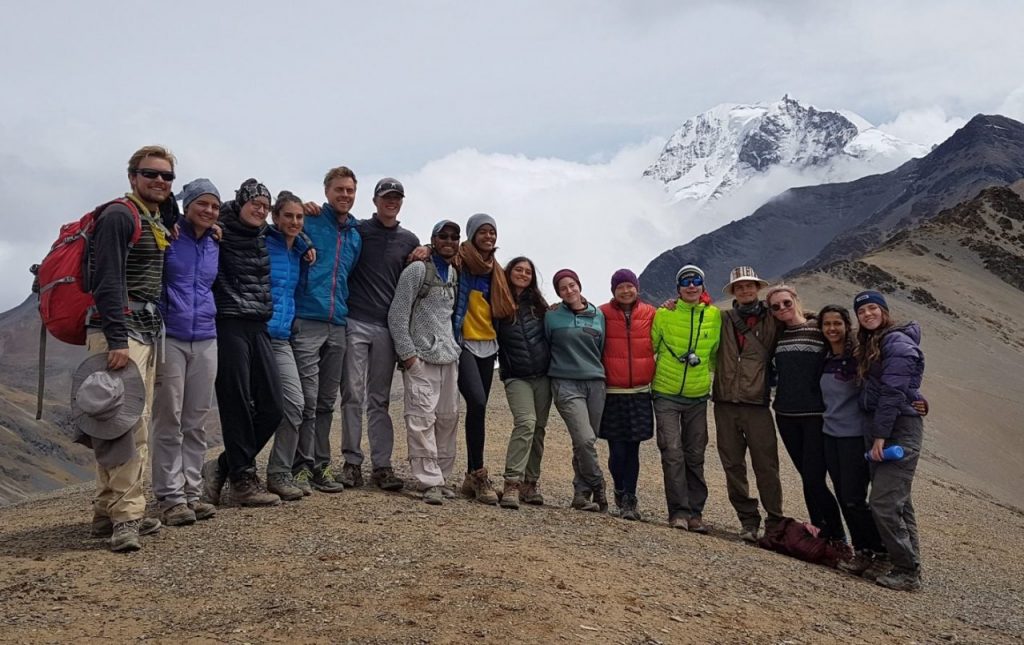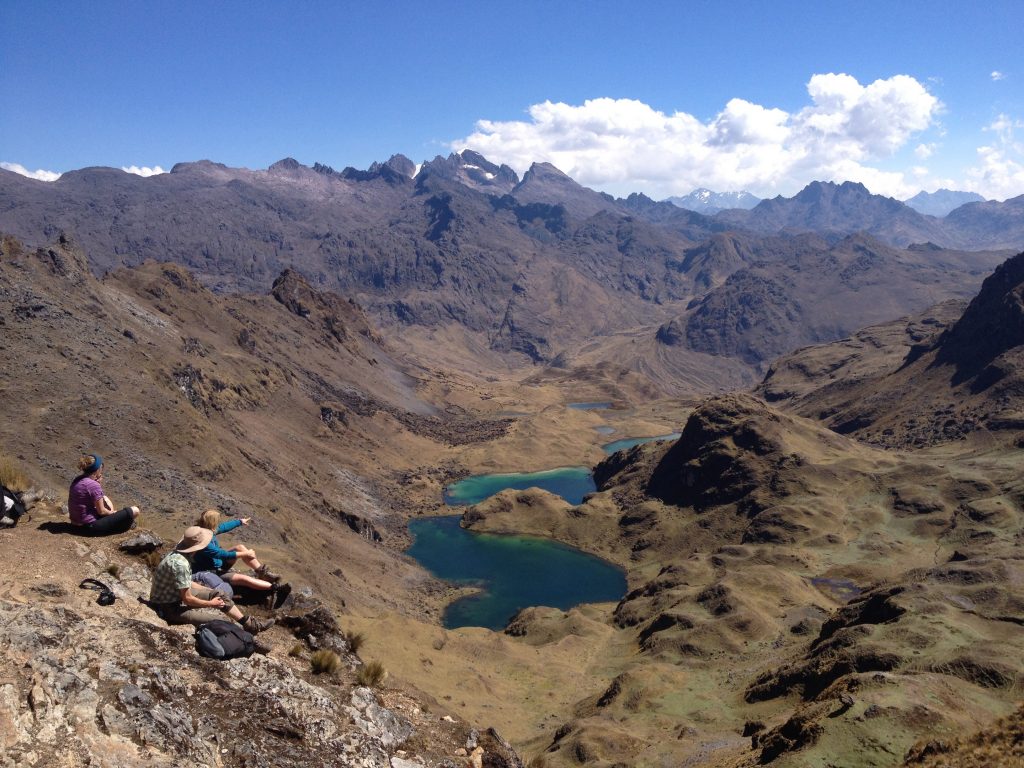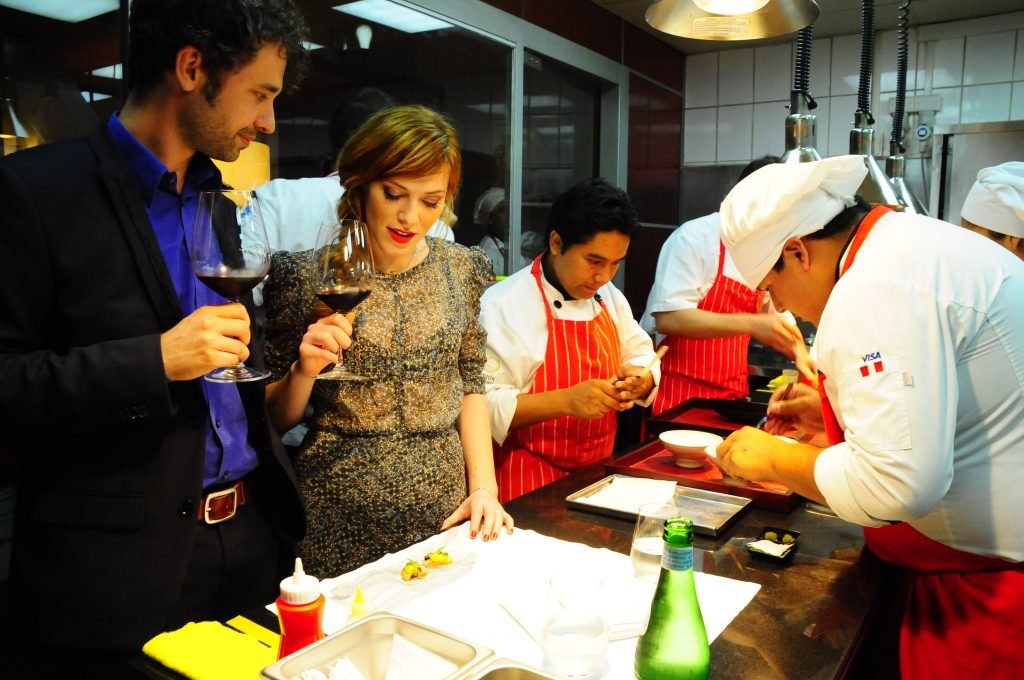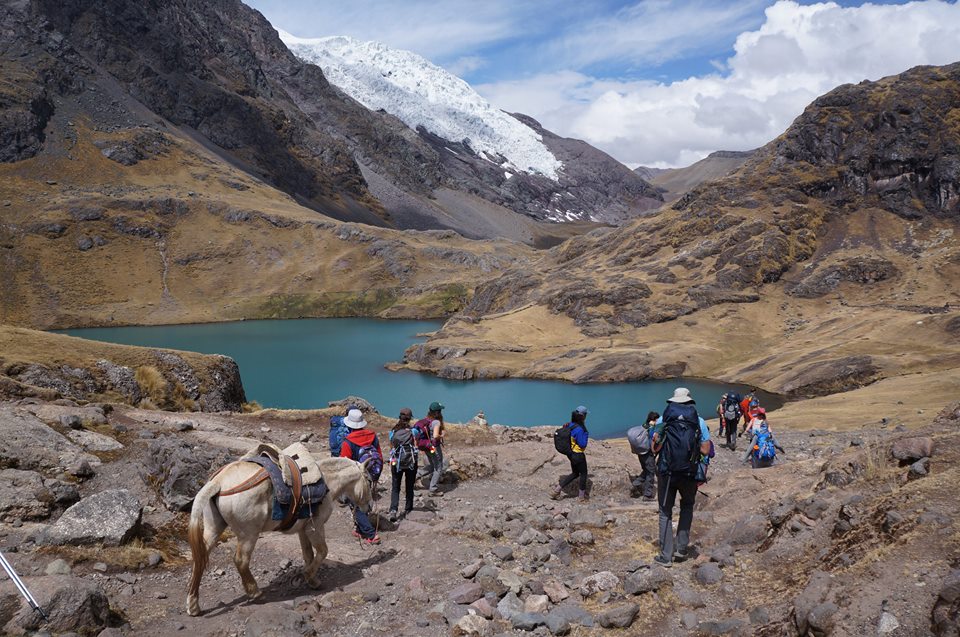Having a VIP client is an exciting moment for a company. VIPs (and their trip planners) have high standards, and it’s a noteworthy achievement if your tour company is selected to host a high-profile client. However, it can also be nerve-wracking and challenging, as the stakes are high and VIPs are not like regular travelers.
Last year, Vamos Expeditions was selected as the local ground operator in Peru for Malia Obama’s recently disclosed trip through Bolivia and Peru, which she undertook in the fall of 2016 during her gap year. The tour was booked through the cross-cultural gap year specialist Where There Be Dragons. This fall, the oldest daughter of former president Barack Obama is attending Harvard.
“In most cases, working with high-profile VIPs is a challenge and a bit terrifying,” said Annelies Hamerlinck, executive director of Lima-based Vamos Expeditions, which has hosted several VIPs, including Silicon Valley startup founders, television personalities, and Thai royalty. “You’re working with some of the most powerful and richest people in the world, and, in our case, in developing countries where plans sometimes change and flexibility is key.”
For tour operators that may host a VIP — or the child of one — here are several suggestions (with insight from Hamerlinck) to ensure everything goes as smoothly and safely as possible.

Start early
Organization and planning are key because there are always extra challenges when hosting high-profile clients. “We started as soon as we heard the news,” Hamerlinck said. Because Vamos Expeditions maintains open and clear communication with the country’s Ministry of Tourism, it was able to obtain special permits for Malia — a guest requiring security protection — though part of her itinerary included trekking in remote places that didn’t require special permits, which actually made it much easier to keep her identity anonymous. “It’s very helpful if you maintain good contacts with your tourism board and ministry,” Hamerlinck advised. “They will be there to orient and help you. Make sure you have the right contacts ready, establish contact, and ask what paperwork needs to be gathered, in which way, and who it needs to be presented to.”
If there are home or community stays, invest time in getting to know the hosts. “Know who lives in the house and check again right before the client arrives. Maybe there is someone now visiting,” she said. “It is key to know the families you are going to work with and have an established relationship with them and brief them well, especially when working with young adults.”
Anticipate everything that can go wrong
Safety can’t be compromised, and it’s important to have a good risk management plan. Identify specific points in the itinerary that could involve potential risk, and consider the resources available to minimize, monitor, and control the probability and/or impact of such events taking place. Always have evacuation and alternative routes in mind. Some companies may choose to travel with a doctor on hand, but regardless, always know where the nearest medical care centers are located during every step of the trip.
“Imagining worst-case scenarios is a scary exercise, but it’s important to know exactly how we would work through every possible situation, what resources we have, and what additional help we might need,” Hamerlinck said. In Malia’s case, the Vamos team needed to develop evacuation routes, coordinate with a security detail, have extra emergency equipment on hand, inspect transportation in advance, and have extra personnel on call.

Work with the security team
Many VIPs travel with one or more security personnel. Sometimes a team is sent to check out locations beforehand, and this is the perfect time to get to know them, understand their needs, ask questions, and establish communication channels. As for the best way to establish good communication between security and the tour staff, Hamerlinck said, “it’s wise to designate a clear point person for both teams. There can be different points of contact for different areas, as long as it’s clear to everyone.”
Remember that security agents are on a separate mission; generally they don’t want to be too close to or far away from the client. “Especially with flexible itineraries, they need to know the plan and any updates,” she said. “Write down and go over as many details as possible with them. They will want to check on the transport vehicles in advance, so make sure the drivers and vehicles are available early.”
Nail the logistics
Make a list of all the cars, drivers, staff names, distances, stops, hotels addresses, and hotel room numbers. “Security will want it, so you may as well write it all down as you go,” Hamerlinck advised. When planning lodging and transportation, remember the security contingent will likely want a room at the same hotel and its own transport following closely behind. There may be special permits needed.
Calculate costs
In general, you need to assume security will have a lot of special requests and last-minute things you will need to take care off, and they will need to be done quickly. “I recommend calculating in one extra person on the ground to deal with the security staff to keep them updated about the latest plans,” Hemerlinck said. Tour companies may decide not to charge for small unexpected costs, such as a quick drive to pick something up, but more expensive, on-the-spot expenses may be charged to the client. Just be upfront about additional costs and settle it with the client at the end of the tour.

Build your A-team
Carefully select the staff members who will be in touch directly and indirectly with the client. “Know your guides and staff. Some of them may handle stress better than others,” Hamerlinck said. When unforeseen circumstances happen, you need to be able to call in more people to help, so make sure you have vetted, back-up personnel available. Larger groups of VIPs require more staff ready to act at a moment’s notice.
Maintain confidentiality
It’s vital to respect privacy and confidentiality agreements. Keep a VIP’s identity on a need-to-know basis. “In many cases most people didn’t have to know the identity of our special guest. People may have noticed the security, but in the case of a group, we didn’t need to be specific about which person was the VIP,” she said.
Additionally, there can be strict privacy concerns, especially with minors. Companies may be required to sign legal documents preventing them from revealing the client’s identity for a certain period of time, or perhaps forever. In some cases, companies may not be allowed to take photos, and in others, it may be allowed but you can’t publish them. Or, companies may be able to use the photographs but not tag the high-profile clients on social media.
“Every case is different, and it is important to know so your staff and everyone who comes into contact with the VIP can abide by the rules,” Hamerlinck said. “In Malia’s case, we didn't have to sign confidentiality agreements, though we felt it important to respect her privacy during the trip and afterwards so she could process her learning experience. In other cases we have had to sign very strict confidentiality agreements.”
Get a lawyer
There will be paperwork, and it’s best to have it checked by a lawyer. “We always want to make sure we understand all the conditions, and that we, as well as the client, are protected,” Hamerlinck said. In cases where legal paperwork is involved, it can be overwhelming, so choose a lawyer familiar with both local laws and the laws of the country in which the contract originated.

Act normally
Hosting a VIP is not a normal situation, but everyone (staff, security, and the VIP) will relax more if you pretend it is. Don’t be starstruck, ask personal questions, or get too chummy. “We’ve dealt with many high-profile people and their family members, and they are just human beings who are looking for a great travel experience, want to be out of the spotlight, and relax. We tell our staff to just be themselves, and treat them as they would any other customer,” Hamerlinck said.
Finally, relax and take stock
“Taking the then-sitting president’s daughter trekking in the Peruvian Andes and Amazon was a big deal, as was traveling around with 15 Secret Service agents, seven support vehicles, and local special teams waiting in the wings, all the while delivering what we can honestly say was a very authentic experience, including community stays,” Hamerlinck said.
And the company achieved its goal of providing a stellar travel experience for a high-profile client. Malia loved the trip, and wrote (giving the tour operator permission to reprint her comments): “I grew so much more than I could have expected. More specifically, I grew in a very different way than I do at home or in the classroom.”
